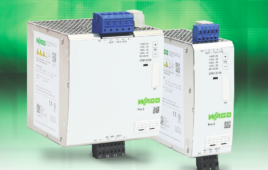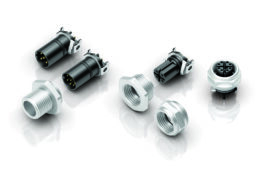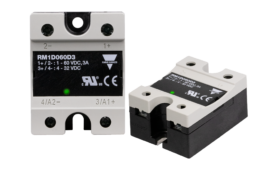RICHMOND, VA – Weidmuller introduces a new line of long life single-phase and three-phase Power Solid-State Relays (PSSR). These relays are designed to reliably switch AC loads up to 20 Amps, making them ideal for use in industrial environments.

Weidmuller’s new Power Solid-State Relays
Unlike standard contactors or relays, a PSSR operates silently and has the ability to switch high loads over a long period of time without any wear. These solid-state relays feature a high peak load rating, with sufficient reserves to trip in-line fuses. Integrated protective circuits, consisting of varistors and RC-combinations, enable the PSSR to function reliably, even in instances of capacitive and inductive current spikes– such as those that occur from electric motor in control applications. “With the high reliability and longevity of Weidmuller Power Solid-State Relays, customers can significantly reduce maintenance costs and optimize machine up time,” says Susanne Walker, Product Manager.
The integrated zero-voltage switching makes single-phase PSSRs suitable for switching resistive loads up to 20 Amps, without any de-rating, to an ambient temperature of 55°C. This feature makes the PSSR an ideal choice for high temperature and high resistive load applications such as pulsing cartridge heaters used in injection molding machines, or for switching infrared emitters often used in wastewater plants.
Three-phase PSSRs are designed with instantaneous switching functionality, making them a perfect choice for use with motor controls in mechanical and system engineering applications.
Weidmuller offers single- and three-phase PSSRs for 24VDC or 230VAC control voltage applications. Each relay features a green LED for quick and easy identification of operating status. The Power Solid-State Relays are DIN-rail mountable and easy to wire, for reduced installation time and costs. They are CE and cURus approved for use in demanding industrial applications worldwide.
Weidmuller
www.weidmuller.com
::Design World::
Filed Under: Relays, ELECTRONICS • ELECTRICAL





Tell Us What You Think!